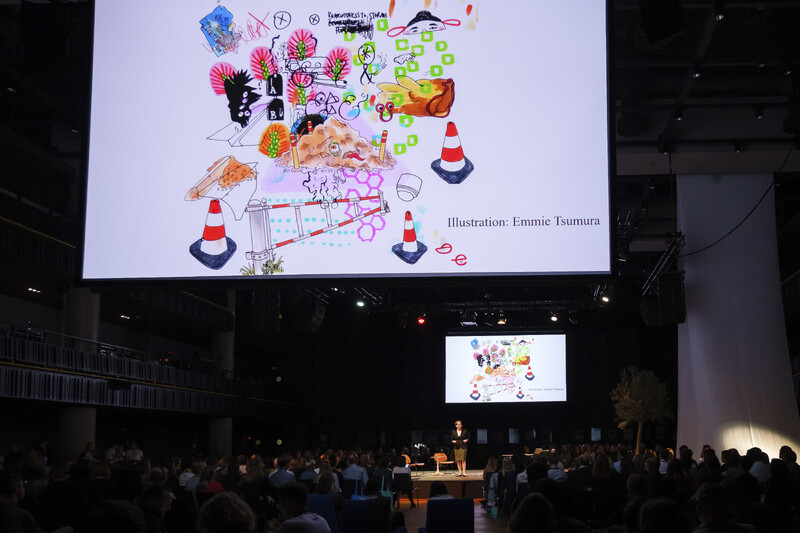
In response to the ways data has historically, and continues to be, deputized to perpetuate injustice and inequality, activists, policy-makers, artists, and scholars have called for greater data governance, ethics, and sovereignty. Panelists will discuss strategies for guarding against what Tiara Roxanne calls “data colonialism”—existing systems of data collection and use that create harm. How can communities take back stewardship of their own data? How can data collection and analysis suspend a “damage-based” approach?1
Presenter Biographies
See Connections ⤴
Nora N. Khan is a writer of criticism. She is on the faculty of Rhode Island School of Design, Digital + Media, teaching critical theory, artistic research, writing for artists and designers, and technological criticism. She has two short books: Seeing, Naming, Knowing (The Brooklyn Rail, 2019), on machine vision, and with Steven Warwick, Fear Indexing the X-Files (Primary Information, 2017), on fan forums and conspiracy theories online. Forthcoming this year is The Artificial and the Real, through Art Metropole. She is currently an editor of The Force of Art along with Carin Kuoni and Serubiri Moses, and is a long-time editor at Rhizome. She publishes in Art in America, Flash Art, Mousse, 4Columns, Brooklyn Rail, Rhizome, California Sunday, Spike Art, The Village Voice, and Glass Bead. She has written commissioned essays for exhibitions at Serpentine Galleries, Chisenhale, the Venice Biennale, Centre Pompidou, Swiss Institute, and Kunstverein in Hamburg. This year, as The Shed’s first guest curator, she organized the exhibition Manual Override. Her research and writing practice extends to a large range of artistic collaborations, which include librettos, performances, exhibition essays, scripts, and a tiny house.
See Connections ⤴
Kristine Neglia is the new Manager of OCAP® & Information Governance with the First Nations Information Governance Centre (FNIGC). Responsible for education and training activities, Kristine supports First Nations, Indigenous and non-Indigenous organizations increase their knowledge and skills related to OCAP®, Information Governance, and First Nations Data Sovereignty. Prior to FNIGC, Kristine was the Education Specialist for the First Nations Health Managers Association, facilitating the intensive Certified First Nation Health Managers curriculum to health management professionals across Canada. A member of the Curve Lake First Nation in Ontario, Kristine has worked for Indigenous organizations at the local, provincial, and national levels, and is always excited to speak about the First Nations Principles of OCAP®.
See Connections ⤴
Tiara Roxanne (PhD) is an Indigenous cyberfeminist, scholar, and artist based in Berlin. Her research and artistic practice investigates the encounter between the Indigenous Body and AI. More particularly, she explores the colonial structure embedded within artificial intelligence learning systems in her writing, and in performance art using textiles. Currently her work is mediated through the colour red. She received the Zora Neale Hurston Award from Naropa University in 2013, where she completed an MFA. Under the supervision of Catherine Malabou, Tiara completed her dissertation, "Recovering Indigeneity: Territorial Dehiscence and Digital Immanence" in June 2019. Tiara has presented her work at Images Festival (Toronto), Squeaky Wheel Film & Media Art Center (NY), Trinity Square Video (Toronto), SOAS (London), SLU (Madrid), Transmediale (Berlin), Duke University (NC), re:publica (Berlin), Tech Open Air (Berlin), AMOQA (Athens), among others. She is currently a researcher at DeZIM-Institut.
See Connections ⤴
Bianca Wylie is an open government advocate with a dual background in technology and public engagement. Her main areas of interest are democracy and public technology.
See Connections ⤴
Data Governance, Ethics, and Sovereignty
Moderated by Tiara Roxanne
Streaming January 23, 5pm – January 27, 5pm, 2021.
- Moderator
- Tiara Roxanne

The Blackwood
University of Toronto Mississauga
3359 Mississauga Road
Mississauga, ON L5L 1C6
[email protected]
(905) 828-3789
The galleries are open. Hours of operation: Monday–Saturday, 12–5pm.
Facebook | Twitter | Instagram
Sign up to receive our newsletter.
The Blackwood is situated on the Territory of the Mississaugas of the Credit, Seneca, and Huron-Wendat.